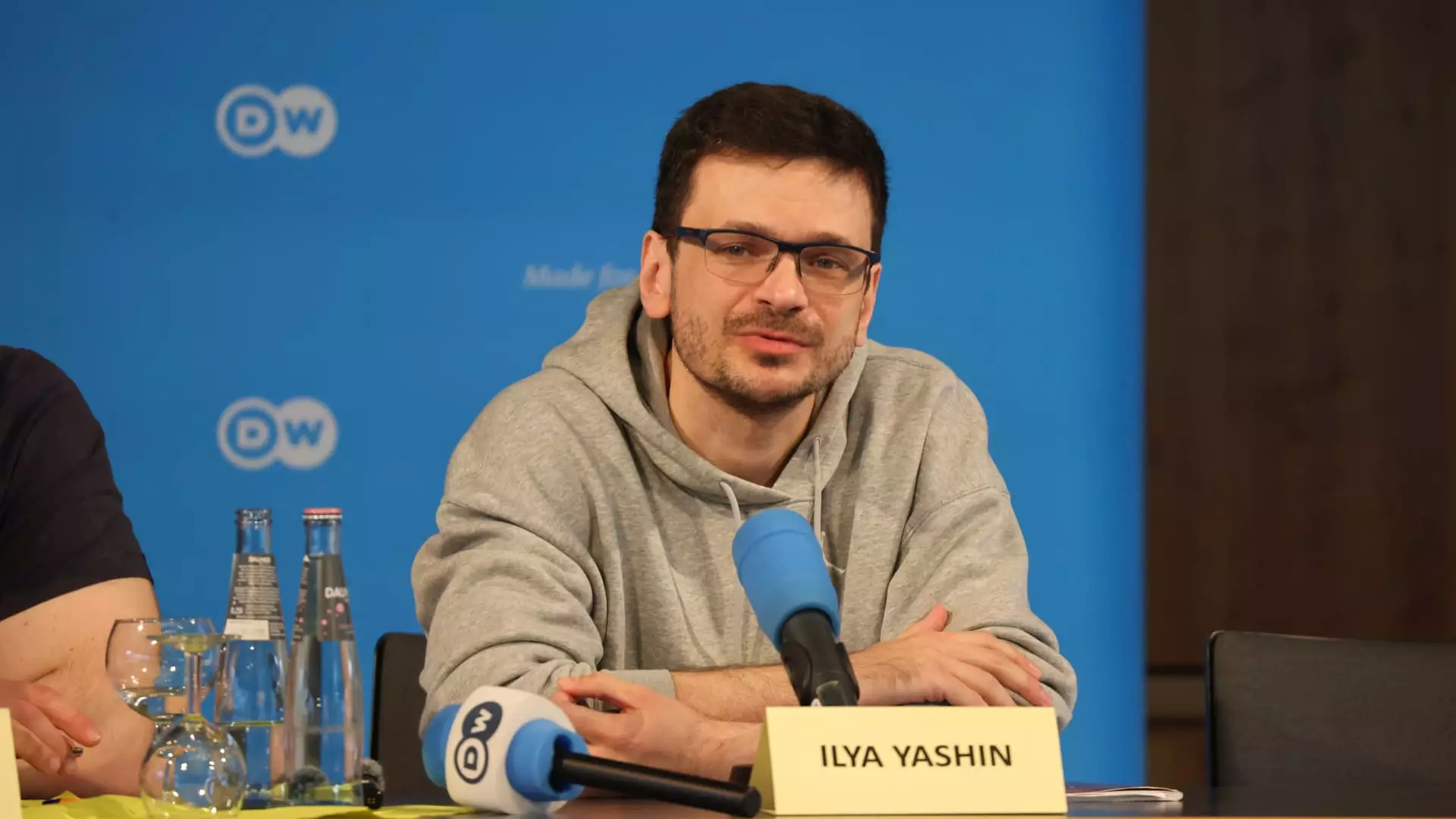The recent prisoner exchange involving Ilya Yashin, a prominent Russian opposition figure, has stirred significant debate and emotion, highlighting both the potential glimmers of hope for political dissidents and the harsh reality of forced exile. While the swap, noted as the largest of its kind since the Cold War, resulted in the release of eight Russian nationals—including one convicted murderer—in exchange for 16 prisoners held in Belarus and Russia, Yashin’s personal experience casts a shadow over what many viewed as a diplomatic success. Specifically, he expressed outrage at being deported against his will, marking a contentious outcome for a man who had spoken out openly against President Vladimir Putin’s regime.
Yashin’s imprisonment stemmed from his vocal opposition to Putin’s military actions in Ukraine. This newfound freedom, however, came at an unexpected cost: unrequested exile from his homeland. Yashin articulated his discontent during a heartfelt press conference in Bonn, where he unveiled the emotional and ethical complexities of his situation. The juxtaposition of being freed yet stripped of the very soil he fights for leaves a bitter taste, questioning the morality behind such diplomatic negotiations.
Personal Sacrifice and a Quest for Freedom
During his press conference, Yashin made it clear that he had not consented to the conditions of his release, strongly distinguishing it from an act of valor. He reiterated, “From my first day behind bars I said I was not willing to be a part of any exchanges.” His sentiment encapsulates a deeper issue—political prisoners often find themselves pawns in a larger geopolitical game, their lives reduced to bargaining chips. This reality is magnified in Yashin’s case, as he emphasized the dire conditions faced by his fellow detainees, suggesting that others, particularly those in urgent need of medical attention, should have been prioritized over him.
Yashin’s plight resonates especially strongly in light of the recent, tragic death of dissident Alexei Navalny in custody, raising alarming questions about the safety of prisoners critical of the Kremlin. His emotional outcry about the lack of choice reflects a profound fear shared by many political prisoners: the fear of being forgotten or dehumanized amid political maneuvering.
The Aftermath: A Commitment to Resistance
Despite the tumultuous circumstances surrounding his release, Yashin remained resolute in his commitment to advocate for freedom and democracy in Russia. Standing alongside fellow activists, Vladimir Kara-Murza and Andrei Pivovarov, they collectively vowed to continue their struggle from abroad, each harboring a fierce ambition to see change in their homeland. “We will do everything to make our country free and democratic, and get all political prisoners released,” Pivovarov stated, capturing the collective sentiment of resistance.
Kara-Murza brought light to the harsh realities of Russian political dynamics, taking aim at Putin directly by labelling him as a “usurper and a murderer.” Their camaraderie and shared determination provide a powerful narrative of perseverance against a regime intent on silencing dissent. Each activist’s story represents a chapter of unwavering courage, as they confront the moral quandaries faced by those who remain in Russia under an oppressive regime.
The criticism directed toward leaders like German Chancellor Olaf Scholz for their decisions regarding such prisoner exchanges opens up a conversation about the moral compromises often required in diplomacy. Such scenarios fuel debates over whether saving lives justifies engaging with dictatorial regimes and the ethical implications of releasing those complicit in atrocities to meet political ends. Kara-Murza’s candid acknowledgement of facing a difficult moral choice regarding the fate of the convicted murderer, Vadim Krasikov, reflects the weight of these decisions.
He stated, “Scholz is being criticised in some quarters for the difficult decision to release Putin’s personal killer… But easy decisions come only in dictatorships.” This sentiment touches upon the tension between the dire necessity of preserving life and the unjust actions that dictate these choices, leaving many to grapple with the consequences of political strategy over profound ethical dilemmas.
Ultimately, Yashin’s experience as a free man, though fraught with the complexities of forced exile, serves to galvanize a movement dedicated to justice and reform. He expressed a yearning to return home, underscoring a fundamental truth: that true freedom cannot exist while living in exile, longing for the country that imprisoned him for speaking the truth.
As the world watches these developments unfold, the plight of Yashin and his compatriots will serve as a rallying point for those who believe in the right to dissent. Their journey—from captivity to voice—will resonate as a powerful reminder of the sacrifices made in pursuit of freedom and the continued fight against authoritarianism. The road ahead may be fraught with challenges, but their resolve remains unshaken.


Leave a Reply